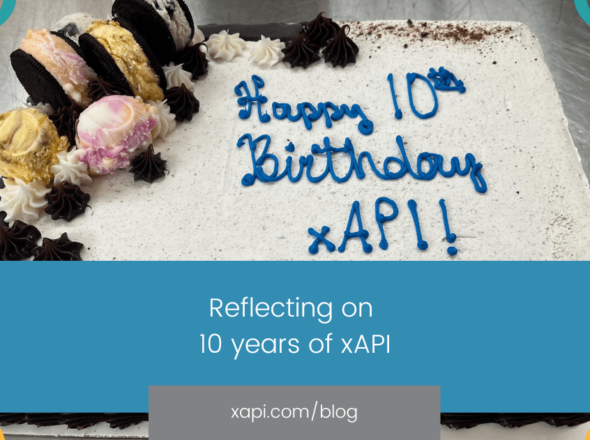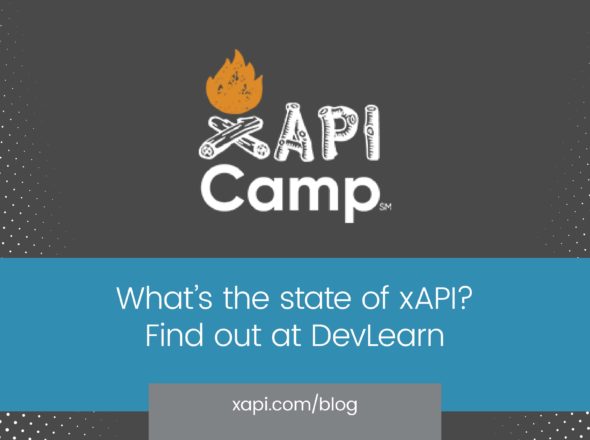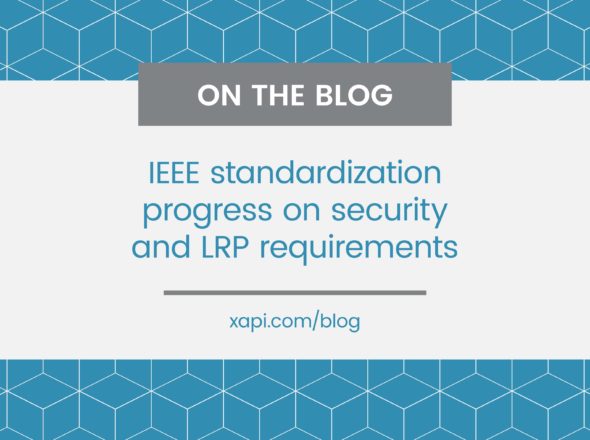Last January I made some predictions for the xAPI world in 2014 and did surprisingly well. In this post I review my 2014 predictions and make some fresh ones for 2015.
At the start of 2014 I predicted a year with little change to the xAPI specification, development of conformance testing tools, release of an open source LRS, xAPI adoption in Moodle and stories of more innovative solutions. These predictions were all based on insider knowledge of being a part of the xAPI Working Group and I’m pleased to say they all came true!
 The conformance test suite prediction was fulfilled recently when we announced a large piece of work that Brian Miller and others had been working on. This is a big step towards helping LRS vendors and others ensure that their products conform to the standard. I expect the xAPI Working Group to continue to improve and add to the test suite throughout 2015 and beyond.
The conformance test suite prediction was fulfilled recently when we announced a large piece of work that Brian Miller and others had been working on. This is a big step towards helping LRS vendors and others ensure that their products conform to the standard. I expect the xAPI Working Group to continue to improve and add to the test suite throughout 2015 and beyond.
My prediction of no limited change to the specification proved to be very accurate as this graph illustrates. Most of the xAPI Working Group were tied up with other tasks: working on improving adoption, supporting communities of practice and developing the conformance testing tools. We (the xAPI Working Group) also wanted to make space for adopters to adopt without things changing. Version 1.0.2 of the specification was released in October to correct a number of typos and clarify some of the text.

Since I joined Rustici Software in November and the release of the test suite, the pace of specification development has been able to increase and I expect that to continue through 2015. I’m expecting two releases to come out in the next year:
- 1.0.3 – most likely due in the first half of the year. This patch release won’t include any functional changes but will include a number of clarifications to make the spec easier to understand and follow, plus a number of recommendations that will become requirements in a later release.
- 1.1.0 – Likely to hit in the back half of the year or into 2016. This minor version release will include some minor improvements for LRSs to implement and activity providers to enjoy. We’ll keep you posted on the details as this prediction moves towards becoming a reality.

My open source LRS prediction was fulfilled in a big way by Learning Locker LRS which made a big splash in the e-learning world in 2014. Learning Locker has gone much further than I predicted in my 2014 blog and I expect more of the same from them in 2015. My other open source prediction — xAPI in Moodle — didn’t go as far as I’d hoped. There are a number of plugins available to enable xAPI in Moodle, but still plenty of work to be done.
As for stories of innovative use, we had plenty, including:
- The Watershed First and other adopter webinars
- xAPI Hyperdrive at Devlearn
- The xAPI plugfest at I/ITSEC
Expect more and more case studies throughout 2015, starting with our first webinar of the year on January 21 and continuing with a series of adopter spotlight blogs and lots of new entries on the adopters list
I didn’t predict the IEEE standardization work started by Aaron Silvers in 2014. 2015 will see more work on this, but it’s a long process. A Project Authorization Request form is being worked on and is due to be submitted by the end of February, with a project number hopefully assigned by the end of March. The aim is to have one part of the xAPI specification released as an IEEE standard by the end of 2017.
I also didn’t predict the work by Rustici Software’s interns to produce the TinCanPython library. The application process for this year’s interns is already underway, but my crystal ball’s not yet clear on who they’ll be and what they’ll be doing.
What else is coming in 2015? I’m expecting and planning more work around communities of practice, Recipes and The Registry to support those doing more innovative things with xAPI. We’ll also start to see more use of more advanced, but important features of xAPI such as attachments and statement signing. These features aren’t yet supported by our libraries, so we’ll be working on adding it this year.
I hope we’ll see more and more products and learning solutions crafted with xAPI from the ground up and a shift away from a SCORM mindset in learning design. I also hope the community working on the specification and related initiatives continues to grow to become stronger and more organized to further develop and take ownership of the spec.
What are you hoping for? Let me know in the comments below.


